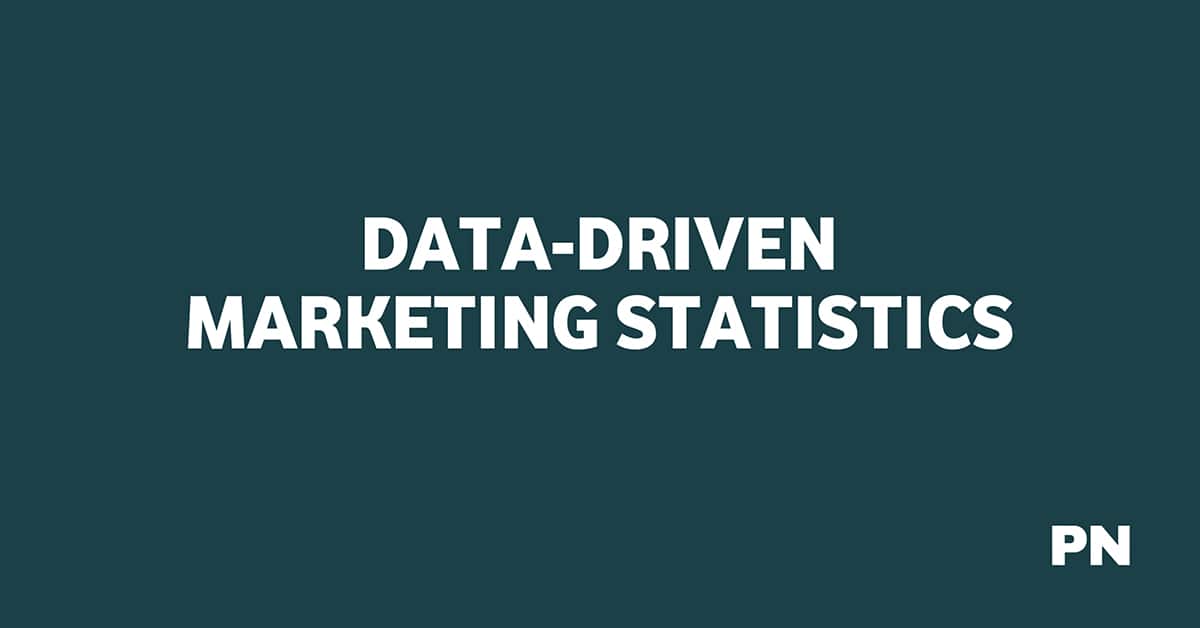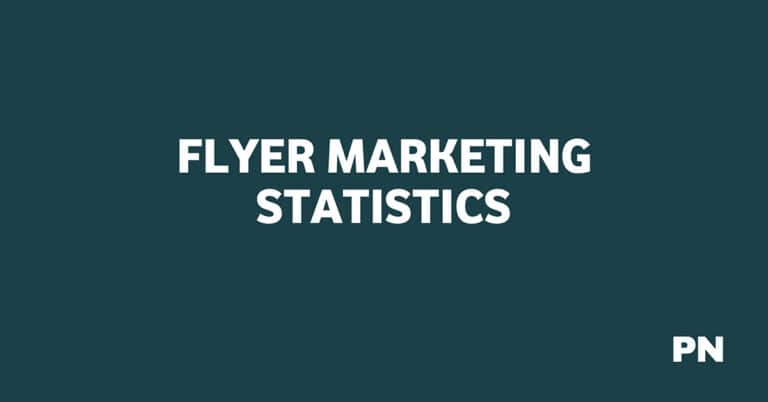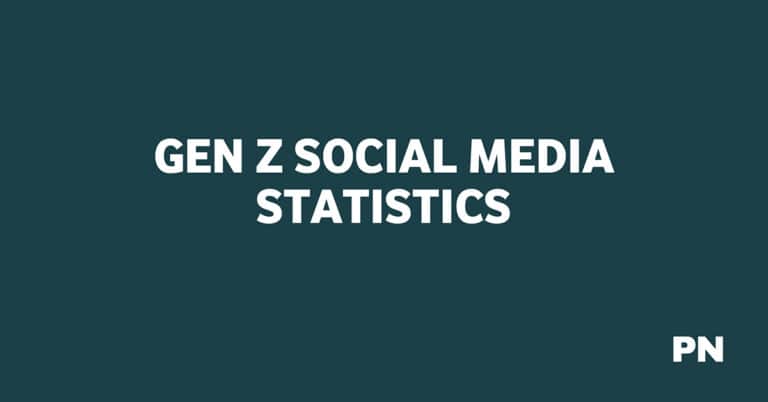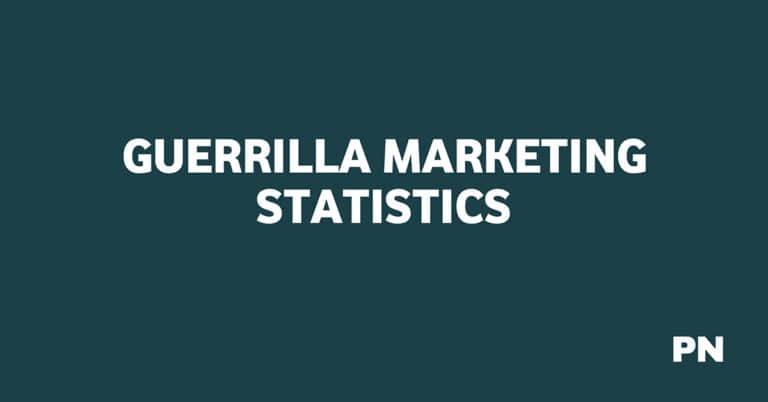24 Insightful Data-Driven Marketing Statistics 2024

Understanding customer behavior has become paramount, and data-driven marketing is the key to unlocking these insights.
While many organizations recognize data as a pivotal resource, they often underutilize it.
By turning to data analytics, marketers can make faster and more accurate decisions, driving brand awareness and directly impacting product development.
With most marketers confirming the necessity of a data-driven approach, there is a clear shift towards more efficient and result-oriented marketing.
1. The global Big Data Analytics Market is expected to be worth over$650 billion by 2029.
(Source: Statista)
This significant investment underscores the value companies place on data’s power to steer marketing efforts.
In your marketing strategy, integrating data-driven practices is crucial.
About 78% of marketers have incorporated data analytics into their strategies.
This integration supports various aspects of marketing, such as content development and message targeting.
In fact, 69% of professionals assert that data-driven marketing sharpens the focus on content and messaging.
Data-driven marketing is not merely a trend but a fundamental component of modern marketing practices.
It empowers you to make informed decisions, tailor communications, and drive business growth.
2. 87% of Marketers Say Data is Their Company’s Most Under-Utilized Asset.
(Source: Invesp)
In today’s data-rich environment, it’s striking that you, like many other marketers, might not be leveraging data to its full potential.
This statistic suggests a vast reservoir of untapped value you could harness to enhance marketing strategies.
Being aware of the volume of consumer data available to you is crucial.
However, the real game-changer is utilizing this data to shape your marketing initiatives.
It’s not merely about collecting information; it’s about transforming that information into actionable insights.
Your audience is open to data exchange if it benefits them.
Hence, craft data-centric campaigns that resonate with your targets and optimize your marketing spend.
It’s time to break down the silos, integrate cross-functional data sources, and craft a narrative around the numbers.
Capitalize on this under-utilized asset and position yourself at the cutting edge of data-driven decision-making.
3. 40% of Brands Plan to Increase Their Data-Driven Marketing Budgets.
(Source: Invesp)
Investing more into DDM signifies a desire for a deeper analysis of consumer data, predictive analytics, and a more personalized marketing approach.
Consider the following points to increase your DDM budget effectively:
- Invest in quality data collection tools and platforms for accurate insights.
- Prioritize training for your team to hone their analytical skills.
- Collaborate with IT and data science departments to ensure you leverage the latest technologies and methodologies.
Remember, with this planned budget increase, it’s crucial to focus on strategic goals, clear KPIs, and continuous optimization to ensure every dollar spent is an informed investment.
4. 64% of marketing executives “strongly agree” that data-driven marketing is crucial in today’s landscape.
(Source: KPI Digital)
As a marketing executive, your perspective on data-driven marketing significantly shapes your organization’s strategy.
Your role often involves identifying patterns, understanding customer behavior, and predicting market trends.
Leveraging data can increase personalization, enhance decision-making, and optimize budgets.
The competitive advantage of utilizing data is clear. It informs strategies and helps anticipate future consumer needs.
With most of your counterparts affirming its importance, data-driven methods are evidently transforming the marketing industry.
Your data-driven marketing efforts will likely become invaluable as the digital landscape evolves.
Staying ahead means continuously adapting and refining your strategies—always backed by concrete data.
5. 47% of Marketing Decision-Makers Surveyed Worldwide Included Email Marketing in Areas Where Data-Driven Marketing Was the Most Useful.
(Source: Statista)
Email marketing has emerged as a central component in data-driven marketing strategies.
When you harness data-driven marketing, you gain insights into consumer behaviors, preferences, and engagement patterns.
Email marketing, with its ability to be highly personalized, provides fertile ground for using such insights effectively.
As a marketing decision-maker, you should recognize the high potential of incorporating email marketing within your data-driven strategy.
The ability to target and personalize, along with relatively strong open rates, can potentially translate to successful marketing initiatives, provided conversion strategies are also honed.
6. Leading marketers are 72% more likely than the mainstream to invest in improving the quality and/or volume of the first-party data they capture.
(Source: Econsultancy)
When you think about data-driven marketing, the emphasis often centers on how effectively you can use data to steer your strategies.
A distinguishing factor for leading marketers is their propensity to prioritize enhancing first-party data.
Your focus on first-party data is crucial because it originates directly from your customer interactions, providing a wealth of insights.
Improving this data can mean deploying advanced analytics tools, enhancing data collection methods, or investing in team training.
As you capture more refined data, your capacity to personalize marketing efforts and predict consumer behavior increases, illustrating why leading marketers prioritize this investment.
7. Marketing marketers are 1.3x more likely to have a documented data and analytics strategy and 1.5x more likely to have a clear view of their customers’ journeys.
(Source: Think With Google)
Documentation is critical in ensuring consistency and clarity in your marketing approach, enabling your team to align on objectives and metrics.
Marketers with documented strategies can produce a more coherent and customer-focused approach.
Also, understanding the customer journey allows for better resource allocation and maximizing ROI.
This pivotal insight into customer journeys reflects the broader shift towards a more empirical and customer-centric marketing landscape.
It underscores your pivotal role in harnessing and interpreting data to create a more engaging and effective marketing strategy.
8. 88% of marketers surveyed by Forbes use data obtained by third parties to enhance their understanding of each customer.
(Source: Data Axle)
In marketing, strategies are often fueled by insights drawn from relevant data.
By integrating data sources external to their own, marketers can paint a broader, more detailed picture of consumer behavior and preferences.
Incorporating third-party data effectively bridges gaps in customer knowledge.
This strategic move can lead to more effective marketing campaigns, as you’re not solely relying on the data you’ve collected directly from your interactions with customers.
Instead, you enrich your database with a wider array of touchpoints and behavioral signals.
Remember, while valuable, it’s crucial to adhere to privacy regulations and ethical considerations when utilizing third-party data.
Achieving a balance between comprehensive insight and responsible data use is key to successful data-driven marketing.
9. 66% of Marketing Data is Used to Better Focus on Targeting Offers, Messages, and Content.
(Source: Luzmo)
As you navigate the landscape of data-driven marketing, it is essential to understand how crucial data is for targeting your communication.
This data streamlines your offers, messages, and content to align closely with your audience’s preferences and behaviors.
By utilizing this data effectively, you can achieve more personalization in your marketing campaigns.
Leveraging data to inform these areas ensures that your marketing efforts are not just broad strokes but precise and personalized engagements with your audience.
This fosters stronger customer relationships and increases the potential return on investment for each marketing initiative you undertake.
10. 44% of Marketers Say They Have Data Management Platforms, and 33% Plan to Have One.
(Source: Digital Doughnut)
Data management platforms (DMPs) are not just a luxury but a necessity for many.
These centralized platforms collect, categorize, and activate large volumes of data from various sources, streamlining the decision-making process.
As businesses generate more data, the trend toward DMPs will likely increase.
Implementing a DMP can give you a competitive edge by enabling personalized marketing campaigns, improved customer targeting, and campaign effectiveness measurement.
11. 97% of business leaders say they want help from data.
(Source: PR Newswire)
This highlights data’s immense value in informing and guiding marketing strategies.
Ideally, these professionals seek to leverage data for various purposes:
- 44% aspire to make better decisions,
- 41% aim to reduce risk,
- 39% desire to make faster decisions,
- 37% focus on increasing profits, and
- 29% prioritize preparing for unforeseen circumstances.
These objectives underscore the versatility of data as a tool that not only refines marketing approaches but also bolsters organizational resilience and growth.
By harnessing the power of data, marketers can navigate the complexities of their field with greater precision, confidence, and success.
12. Data-driven marketing is only 20% of marketing spend.
(Source: Digital Doughnut)
Despite the benefits of data-driven strategies, many organizations still allocate a relatively small portion of their budgets to this approach.
Your focus on traditional marketing methods might still be strong. But it’s worth considering the advantages of shifting more resources into data-driven techniques.
The advantage here is not just in aligning with technological advancements but also in making more informed decisions.
This distribution shows substantial room for growth in the data-driven domain.
Your endeavors in this area could lead to more personalized marketing efforts, higher revenues, and a stronger competitive stance.
Assessing your company’s data maturity and capacity to integrate more data-driven tactics into your marketing spend is essential, as this will better position you for future industry shifts.
13. 77% of organizations faced data quality challenges.
(Source: AI Data & Analytics Network)
The quality of your data directly affects your decisions and strategies.
Key Issues:
- Accuracy: Your data must represent reality to ensure trustworthy insights.
- Completeness: Partial data can lead to incomplete analysis and missed opportunities.
- Consistency: Inconsistencies can confuse analysis, leading to unreliable conclusions.
- Timeliness: Outdated data can result in missed trends and reactive decisions.
Regularly evaluate your data sources for accuracy and reliability to improve data quality.
Data cleansing tools should also remove or amend incorrect or corrupt records. Allocate resources to data management tools and skilled personnel.
Then, comprehensive data governance policies will be established to maintain standards.
Addressing these data quality issues can increase your confidence in data-driven marketing decisions and improve your organization’s strategic outcomes.
14. Data-driven marketing is predicted to grow at a compound annual growth rate (CAGR) of 20.4% from 2021 to 2028.
Data-driven marketing is on an impressive growth trajectory.
The projected growth signifies how critical data has become in shaping marketing strategies.
Companies that employ data-driven approaches can refine their target audiences, tailor their messaging, and quantitatively assess the performance of their campaigns.
Capitalizing on this trend means that you could achieve more personalized customer engagement.
Integrating advanced technologies, such as artificial intelligence and machine learning, is pivotal in harnessing data to inform decision-making processes within marketing departments.
Therefore, staying ahead in the rapidly evolving marketing landscape means continuously innovating how you gather, analyze, and apply data to your marketing initiatives.
15. 67% of marketers believe data-driven marketing improves the speed and accuracy of decisions.
(Source: Primo Stats)
When you leverage data-driven marketing, you can quickly sift through vast amounts of data and identify patterns that may inform product development, marketing strategies, and customer segmentation.
This rapid processing capability means you’re agile in adapting to market changes.
Data can help predict customer churn, allowing you to take proactive retention measures.
Remember, while data improves decision-making, its quality is paramount. Invest in data hygiene practices to ensure the success of your data-driven marketing efforts.
16. Data-driven marketing can increase brand awareness by 50%.
Your brand can significantly enhance its visibility through personalized campaigns that resonate with your target audience.
Your strategy should focus on immediate conversions and aim to create a lasting impression, fortifying your brand’s presence in the consumer’s mind.
Increasing your brand’s awareness through data-driven marketing isn’t just a possibility; it’s a reality supported by compelling statistics and a strategic approach that prioritizes relevance and personal engagement.
17. 40% of Organizations Are Using Data-Driven Marketing to Inform Product Development Decisions.
An emerging trend is the rise of data-driven methodologies guiding these strategic decisions.
By analyzing customer data, you’re better positioned to understand their needs, preferences, and pain points, leading to products that resonate with your market.
You can utilize real-time data to refine product features swiftly and effectively, staying ahead of market shifts.
Data helps you predict product success more accurately, minimizing the risks associated with new product launches.
Incorporating data-driven strategies into your product development doesn’t just keep you in line with the industry shift.
It equips you with the insights necessary to anticipate market needs and deliver value to your customers.
18. 43% of marketers lack the skill sets to handle data-driven marketing.
(Source: Marketing Beat)
Some of the core skills marketers often lacking data marketing are analytical thinking, technical proficiency, and strategic planning.
Without these skills, your efforts may not fully capitalize on the advantages of data-driven marketing, including more targeted campaigns and improved ROI.
This skills gap can ripple across your marketing outcomes.
It’s important to seek opportunities for learning and development in data analytics and related areas. Also, work with data specialists who can complement your marketing expertise.
19. 29% of marketers identify poor data quality as their primary challenge when working with data-driven marketing.
This challenge can manifest in various ways:
- Inaccuracies: Incorrect data can steer your campaigns in the wrong direction.
- Incompleteness: Partial data may offer an incomplete picture of your audience.
- Relevance: Irrelevant data can lead to misguided targeting and messaging.
You need to ensure that the data you utilize is abundant and holds up to the standards of quality required for effective decision-making. Below are some steps you can take to mitigate data quality issues:
- Implement Robust Data Collection Methods: Ensuring your data gathering techniques are accurate and systematic.
- Regularly Cleanse Data: Schedule routine data cleaning to remove or correct erroneous entries.
- Establish Data Standards: Define and enforce data quality standards across your organization.
- Utilize Data Management Tools: Consider using sophisticated software solutions to automate aspects of data quality control.
Remember, high-quality data lets you gain insight into customer behaviors and preferences, ultimately driving successful marketing initiatives.
20. Businesses using big data saw an 8 percent increase in profit and a 10 percent reduction in cost.
(Source: BARC)
Integrating big data into your business’s operations could yield significant financial benefits.
This improvement in profitability is typically attributed to the deep insights and informed decision-making afforded by big data analytics.
With big data, you might enhance profit margins and reduce operational costs.
Cost reductions often result from identifying inefficiencies and streamlining processes.
Utilizing big data is not just an isolated trend; it is becoming a critical element in achieving a competitive edge.
As you consider integrating big data solutions, consider the potential for revenue generation and cost optimization.
21. 62% of retailers (and 63% of cross-industry respondents) have stated that information and data analytics give them a competitive advantage.
(Source: IBM)
As a retailer, your competitive edge is often determined by your ability to understand and use data effectively.
When you invest in data analytics, the benefits extend beyond immediate gains. You build an infrastructure that allows for continued adaptation and growth.
By incorporating a data-driven approach, you remain agile and responsive to changing market conditions and consumer behaviors.
In today’s retail landscape, moving towards data-driven strategies is more necessary than a choice.
22. 63% of marketers have increased their data-driven marketing spending to reach relevant audiences with more targeted promotions.
(Source: Digital Doughnut)
Remember, your goal in increasing your spending on data-driven marketing is to design and execute relevant and compelling campaigns to engage the audience more personally and effectively.
23. Data-driven organizations are not only 23 times more likely to acquire customers.
(Source: McKinsey)
Harnessing the power of data can significantly enhance your approach to customer acquisition.
This impressive multiplier highlights the competitive edge you gain when data is at the forefront of your marketing strategies.
In the current market landscape, your ability to collect, analyze, and act on data is paramount to acquiring customers and setting a foundation for sustained growth and profitability.
24. 54% of companies said that big data improved their control of operational processes.
(Source: Marketing Week)
This enhancement affects various facets of operational management, ranging from supply chain logistics to customer relationship handling.
How Big Data Achieves This:
- Integration of Diverse Data Sources: Your systems can now compile and process data from disparate sources, creating comprehensive visibility.
- Advanced Analytical Tools: Using sophisticated algorithms and machine learning techniques to interpret complex datasets for your benefit.
- Automation: Automated reports and alerts free up your resources so you can focus on strategic initiatives rather than data management.
Embracing big data analytics makes your company more agile and responsive. It better equips you to manage operational intricacies and adapt to ever-changing market demands.
Conclusion on Data-Driven Marketing Statistics
Data-driven marketing is no longer a novelty—it’s a necessity. Your strategic decisions hinge on the reliability and thorough analysis of consumer data.
You’re responsible for crafting marketing campaigns that resonate with your customers, and the wealth of data you have can ensure that your message hits the mark.
Reports indicate that leaders in the marketing field are significantly more inclined to invest in both the quality and quantity of first-party data.
This investment indicates how essential data is in shaping effective marketing strategies.
Remember your ability to interpret and act on data-driven marketing statistics is foundational to constructing a robust and results-oriented marketing strategy.
Disclosure: We may earn commissions if you buy via links on our website. Commissions don’t affect our opinions or evaluations. We’re also an independent affiliate of many platforms, including ClickFunnels, Kartra, GoHighLevel, Podia, Northwest Registered Agent, and others. We’re not employees of these services. We receive referral payments from them, and the opinions expressed here are our own and are not official statements of these companies.





